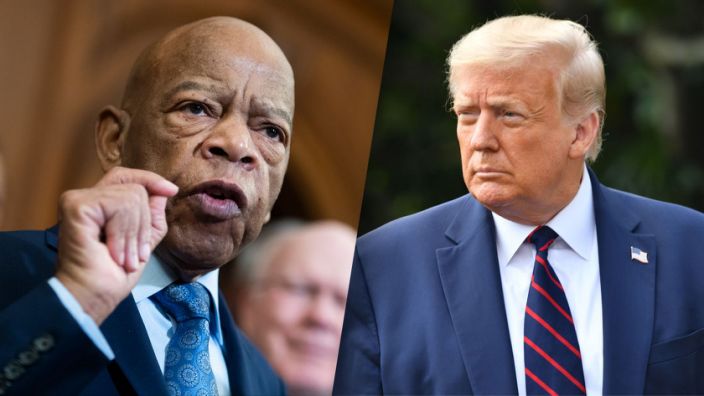
Prior to the 2016 U.S. election, I felt certain Americans were too politically savvy to vote for a candidate who didn’t attempt to hide his contempt for women, minorities, the media, truth, and pretty much everyone who disagreed with him. Also, he pouted when criticized. When the reality of Donald Trump’s election set in, I was amazed and somewhat disheartened. Our most powerful ally would now be governed by an individual whose primary preoccupation seemed to be money and himself. When party leaders chose to defend him during the impeachment process, I concluded that American politics have become extraordinarily convoluted, with deep rifts.
Now, with another election looming in less than 100 days, and knowing something of Donald Trump via his many tweets and threats, I wanted to reach for a greater understanding of what the Trump phenomenon has to say about U.S. politics and culture. What the American President tweets and does (or does not do), can adversely impact the entire world, even reaching into the interior of British Columbia.
Changing demographics appear to play a significant role in Donald Trump’s success. In 1965 whites made up 84 per cent of America’s population. Surveys of population trends indicate that in 25 to 30 years they will be a minority. Yale professor Amy Chua has some insights I find helpful in understanding Trump’s success in attracting a loyal voter base. In Tribal Politics she says, “Strong evidence suggests white anxiety about being displaced, outnumbered and discriminated against has fueled recent conservative politics in America.” A post 2016 election survey by the Public Religion Institute, reported in the Atlantic, found that 52 per cent of Trump voters feel the country has changed so much they often feel like strangers in their own country.
Other studies tell a similar story. A Wall Street Journal post election analysis found that Donald Trump had especially strong support in areas most unsettled by rapid demographic change through the influx of non-white immigrants.
Over the past four years Trump has repeatedly ranted against Mexicans and Muslims, as well as other non-white immigrant groups. He understands intuitively that many Americans feel threatened and has cleverly and unabashedly seized on this angst. Political scientist Michael Tesler suggests that as a candidate, and subsequently, Trump has encouraged the perception that whites are treated unfairly relative to minorities. By repeatedly claiming the media are propagating “fake news,” the President has successfully distorted reality in the minds of many Americans, thereby motivating his voter base to see the world in a way that enhances his election prospects.
Certainly there are disquieting underlying causes for the discontent being expressed by Americans of all races. “The key to understanding extremism in America and elsewhere,” Professor Chua says, “is not in poverty, but in group inequality. It has driven a wedge between whites with an abundance of opportunities and those who have little prospect of advancement.” She also cites race as a major underlying cause of friction in the U.S.
Donald Trump may have learned a few lessons by observing terrorist groups like ISIS and Al Qaeda. Professor Chua says, “Most successful extremist groups offer their members precisely what existing societal institutions do not, a tribe, a sense of belonging and purpose. ”
The President has conveyed his personal sense of paranoia to a considerable segment of white Americans. He has persuaded them they are victims. That those who oppose him are their enemy. He has rallied them to a cause. He came on the scene originally with the bold declaration he would make America great again. But his leadership in combating the Covid 19 pandemic has been inept and lacklustre. By emphasizing law and order rather than a reasoned approach, he is eroding America’s confidence and strength.
Does the Trump phenomenon hold any critical lessons for Canadians? A good beginning might be to resist blaming others when difficult issues confront us. Politicians are desperate to get elected and when mistakes are made, will try to convince us their opponents are the culprits. By asking penetrating questions we are less likely to be deluded when politicians say what they believe we want to hear.
Amy Chua believes approaching each other with compassion, rather than suspicion, is the only way Americans will be able to heal the economic, social and racial rifts dividing the nation. For us it’s important to observe our neighbours next door. We may learn some valuable lessons.
